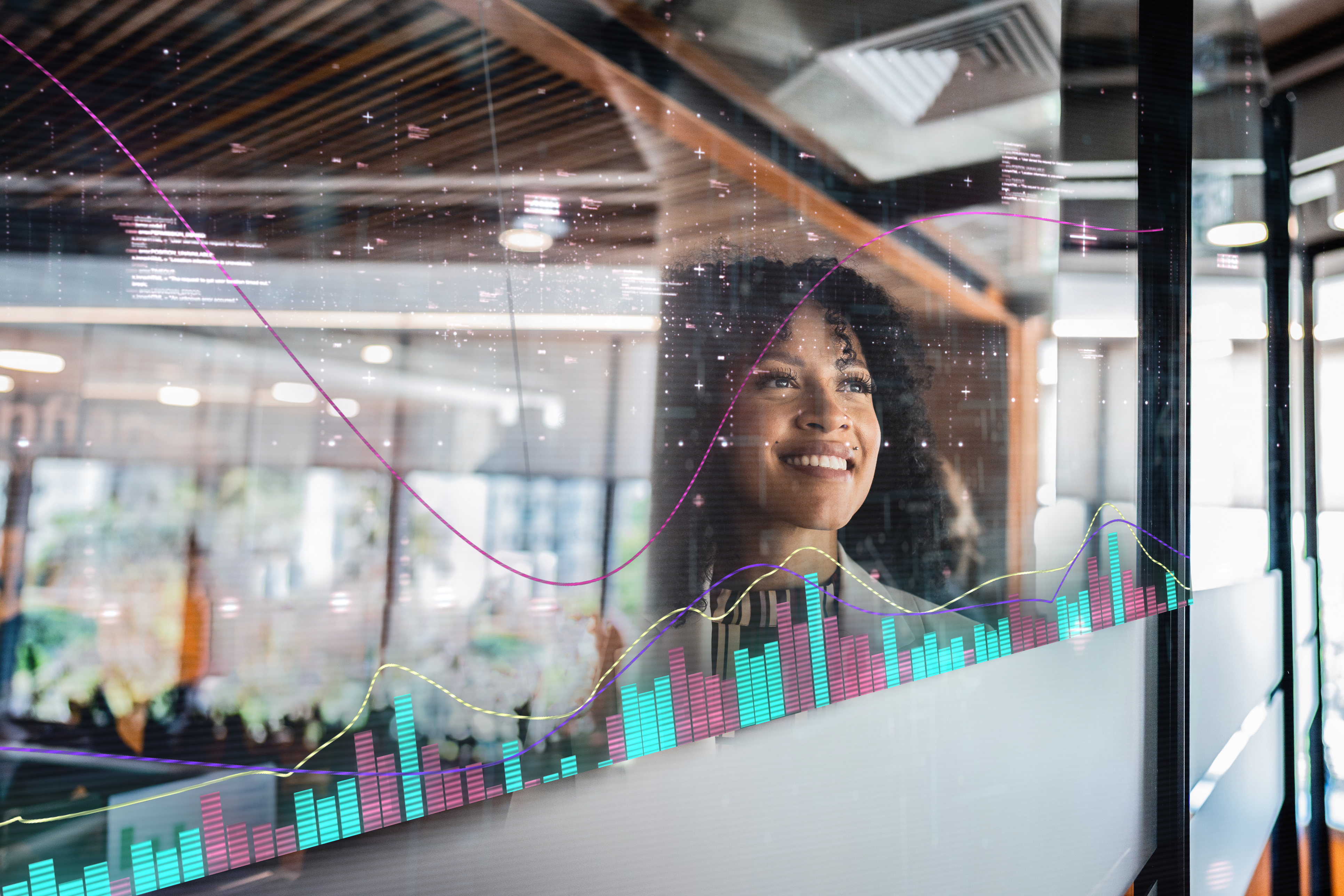- Business Innovation
- Client Stories
- IQ Insigniam Quarterly® Magazine
- Speed to Value: A Playbook for Bold Results
PepsiCo’s Packaging Revolution
If there was ever a statistic to stop you dead in your tracks, consider this: According to Earth.org, over 350 million tons of food packaging waste—much of which contains harmful plastics, polymers, and resins—will linger in our environment for eons to come. Another way to look at it: Of all plastics produced worldwide today, nearly 40% are used for food and drink packaging. Amid a global push toward sustainability, the food packaging industry sees massive investments from enterprises and organizations seeking to turn the tide
According to a recent Eco-Friendly Food Packaging Global Market Report, the global sustainable food packaging market is expected to grow to over $280B (USD) by 2026. Behind that number represents a growing list of companies and startups committed to developing environmentally-friendly materials. Yet, despite stratospheric investments in sustainable packaging, many enterprises are only beginning their journey.
Fortunately, there exists a powerful example of what can be achieved when critical resources and transformative leadership are deployed to achieve real progress. That example has been set by Denise Lefebvre, senior vice president of foods research and development at PepsiCo.

Boasting an incredible global presence with food and beverages savored by consumers over a billion times daily across 200 countries and territories, much of PepsiCo’s success stems from a diverse food and beverage portfolio featuring renowned brands such as Frito-Lay, Gatorade, Pepsi-Cola, Quaker, Tropicana, and SodaStream. With 23 brands, each contributing over $1 billion in estimated annual retail sales, PepsiCo emphasizes the integration of purpose into every facet of its business strategy and brand identity, encapsulated by its commitment to “Winning with Purpose.”
Beyond PepsiCo’s immense size and scope—currently the largest food and beverage company in North America and the second-largest in the world—Ms. Lefebvre is shepherding the company on a transformational journey to design 100% of the company’s packaging to be recyclable, compostable, biodegradable, or reusable. Perhaps most impressively, Ms. Lefebvre and PepsiCo intend to achieve this milestone by 2025.
While some may shudder in the face of radical transformation, Ms. Lefebvre says the opportunity to affect real, lasting change for both consumers and our environment is a treat too tasty to pass over.
“First and foremost, we believe we can make a difference,” says Ms. Lefebvre. Our snacks are in homes everywhere, and we want to make food and packaging that’s better for both people and the planet. It’s not just something we want to do; we see it as our duty. This idea is at the heart of our business strategy. When we talk about packaging, such as making it compostable or recyclable, we want to use our influence to change how society produces, uses, and removes packaging. We know it’s vital to our customers, and we believe that by doing this, we can create future growth and value for PepsiCo.”
On that note, PepsiCo announced a strategic end-to-end transformation in 2021 of their sustainability agenda under the moniker PepsiCo Positive, or pep+. According to the company, three pillars of pep+ drive action and industry-leading goals, including:
- Positive Agriculture: This entails spreading regenerative practices to restore the planet across the company’s entire agricultural footprint, which is approximately 7 million acres.
- Positive Value Chain: This includes achieving net zero emissions by 2030, becoming net water positive, and improving packaging sustainability—including reducing virgin plastics by 50%.
- Positive Choices: This component leverages the scale and reach of PepsiCo’s global brands to drive positive impact at scale, evolve its portfolio into spaces that are better for the planet and people (including incorporating more diverse ingredients like plant-based proteins, nuts & seeds, and whole grains), and to expand its SodaStream business, now expected to avoid more than 200 billion plastic bottles by 2030.
According to Ramon Laguarta, PepsiCo’s chairman and CEO, “pep+ is the future of our company—a fundamental transformation of what we do and how we do it to create growth and shared value with sustainability and human capital at the center,” he noted in a corporate press release. “pep+ will change our brands and how they win in the market. For example, imagine Lay’s will start with a potato grown sustainably on a regenerative field and then be cooked and delivered from a Net-Zero and Net Water Positive supply chain, sold in a bio-compostable bag, with the lowest sodium levels in the market. That’s a positive choice. That’s the best-tasting, #1 potato chip of the future. That’s how pep+ will be better for people, the planet, and our business. Now, imagine the scale and impact when applied to all 23 of our billion-dollar brands.”
[Green]House Rules
Situated in PepsiCo’s offices in Plano, Texas, Ms. Lefebvre began her career with the company in 2006 and has held various roles across research and development in foods and beverages. During her tenure, she has held positions across engineering and food science disciplines, quality systems, marketing, and manufacturing.
As the recipient of over a dozen industry recognitions for improved design and reducing the environmental impact of packaging, Ms. Lefebvre led a team at PepsiCo to develop the world’s first renewable PET plastic bottle.
More recently, much of her work has been dedicated to creating better packaging for the company’s foods portfolio, and not just from an environmental perspective. Ms. Lefebvre understands that for successful adoption of new packaging technology to gain traction, the customer experience is equally as critical.
“We have a requisite of making sure our sustainable packaging stays fresh and also provides a great experience for our customers whenever they open a bag of Lay’s or Doritos,” she says. “To achieve this, we focus on the science and technology behind these materials and are also building partnerships with others in the field. However, it can take a great deal of time to produce these materials. This is partly why we built a massive greenhouse learning center here in Texas, which helps us speed up our testing.”
The facility Ms. Lefebvre refers to is the Greenhouse Learning Center at PepsiCo’s R&D headquarters in Plano. The center tests the biodegradation properties of compostable packages in different environments to accelerate learnings, validate lab results through simultaneous and real-time experiments, and iterate packaging solutions quicker—essential components in PepsiCo’s ability to accelerate speed to value.
“At the Greenhouse Learning Center, we have a team of highly skilled experts dedicated to designing sustainable materials in this field,” she says. “Yet, when it comes to testing these materials, we seek third-party organizations to validate our work and provide an external perspective to ensure we remain true to our goals.”
One of PepsiCo’s significant partners on this journey is the Austrian-based organization TUV (which stands for “Technischer Überwachungsverein,” and translates to “Technical Inspection Association”), which holds the world’s sole certification for material degradation. According to Ms. Lefebvre, TUV plays a crucial role in certifying products from across the globe and assessing material degradation through scientific analysis. However, sending materials to Austria for testing and receiving results became a notable challenge for PepsiCo’s ability to iterate quickly. Hence, a more innovative solution was needed closer to home.
“To overcome this challenge, our Greenhouse Learning Center provides our engineers, scientists, and polymer chemists with immediate feedback,” she says. “We recognized that a critical timeline and a path to success were at stake—shipping materials to Austria and waiting for results hindered our ability to iterate, engineer, and design materials swiftly. Our solution was to implement a system where every adjustment to our material composition could be instantly tested in real-time soil conditions.”
Ms. Lefebvre says this approach allows PepsiCo to leverage its partnership with TUV more efficiently—which includes relying on TUV for final third-party certification. In tandem with The Greenhouse Learning Center, this affords PepsiCo the opportunity to iterate and be confident that packaging will receive final certification from TUV, significantly accelerating its progress and achieving speed to value more effectively.
“Speed is vital in our quest for sustainable packaging, aligning with consumer demand for eco-friendly solutions. We can substantially advance our sustainable packaging initiatives by reducing the timeframes from six to nine months or even a year to a more streamlined process.”
A Passion for PepsiCo—and the Planet
Even with an incredible resource such as a world-class testing center, the success of PepsiCo Positive—and, by extension, the work Ms. Lefebvre and her team are spearheading on sustainable packaging—requires tremendous heart, dedication, and personal investment in the health of our environment. Fortunately, for a leader such as Ms. Lefebvre, PepsiCo’s sustainability goals aren’t just corporate milestones. Rather, they align with her deep-seated passion for protecting our planet.
“I truly believe that wholehearted dedication to our work in these fields is essential,” she says. “To succeed, it’s not just about maintaining external partnerships; it’s also about educating and aligning our internal teams with various market dynamics and consumer behaviors. Having global executives from PepsiCo support our projects has been empowering. When they witness our initiatives in action, they often have an ‘aha’ moment, comprehending the profound impact we can make on the world and how it can be relevant in markets lacking recycling infrastructure. Engaging more minds and fostering dialogue is crucial in such a complex field.”
While Ms. Lefebvre is quick to applaud the company’s scientists and engineers for over a decade of dedication to these projects, she humbly neglects to mention that she was at the heart of this initiative, shepherding PepsiCo teams through massive shifts in the market and protecting the work and results they have achieved from no shortage of existential threats in the last ten years.
Ms. Lefebvre’s unwavering commitment and enthusiasm to learn from internal and external sources, participate in consortiums, and engage with senior leaders at PepsiCo has established her as a truly empowering leader in the company.
“We aim to instill passion and commitment throughout PepsiCo, emphasizing the importance of delivering on our promises, setting clear milestones, and demonstrating tangible results to our leaders and partners,” she says. “Maintaining transparency, continuous education, and open communication is vital. Even if a particular approach doesn’t yield the expected outcome, we embrace it as part of the ‘zigzagging’ path of innovation. This ranks among the most challenging yet rewarding initiatives I’ve had the privilege to work on.”
If there’s a subtext to her comments, it is perhaps the challenges and setbacks that Ms. Lefebvre and team have had to contend with—all while maintaining the same levels of focus, determination, and passion required to spearhead an endeavor that will ultimately touch millions of consumers around the world, as well as the planet itself.
“Throughout this journey, there have been numerous setbacks, and I’ve learned to acknowledge their inevitability,” she says. “Remaining calm and steady for my team and myself in the face of these challenges has been crucial. It’s also essential to reflect on what we could do better and continuously support our mission. Believing in a true North, a guiding vision, is paramount.”
One aspect Ms. Lefebvre says she underestimated is the unwavering commitment of others to such initiatives.
“Many people see complexity but aren’t sure how to navigate it or fully commit. This realization has led to deeper engagement and dialogue to instill the same passion and belief in our mission. I initially assumed that what made sense to me would naturally make sense to others, but that’s not always true. People often ask, ‘Why take the lead in this challenging space?’ It’s my responsibility to explain PepsiCo’s unwavering commitment to positive change, our progress-over-perfection approach, and our dedication to sustainability—which cannot be achieved through isolated innovation; it must be scalable, affordable, and embraced by consumers.”
Ms. Lefebvre advises that this philosophy should be seamlessly integrated throughout the entire value and supply chain, ensuring accessibility for consumers. She says these factors are more critical than “any individual hero pushing an agenda,” as true impact requires meeting the holistic needs of consumers and businesses. For Ms. Lefebvre and PepsiCo, keeping these considerations at the forefront and maintaining a sense of focus throughout challenges is essential for making a lasting impact on stakeholders.
“We need everybody’s brain in the game—and the more people that we can educate and get in dialogue and get differing points of view and have discussion, the better and stronger we’ll be,” she says. “Our primary objective is to drive significant change within PepsiCo by fostering a culture of unwavering commitment with tangible proof. We don’t just make promises; we follow through with actions. We set clear milestones and ensure they are visibly and concretely achieved within our leadership team and with our partners. We maintain the same level of transparency externally because we believe going silent is not an option. Continuous education and communication are essential. We understand that not everything will go as planned, and that’s okay. Progress is not always straightforward; it often involves twists and turns, but we embrace the challenge wholeheartedly.”
Sustaining The Future
Even with over a decade of blood, sweat, and tears spilled in service of a greater goal, Ms. Lefebvre’s excitement for the future is palpable.
“I am thrilled about the future, as we deeply understand the tremendous impact our operations can have on the environment and society,” she says. “PepsiCo takes immense pride in leading the way, and that recognition fuels our unwavering commitment to work collectively to inspire others to drive positive change for our planet.”
As Ms. Lefebvre notes, PepsiCo’s commitment can be witnessed on numerous fronts. From creating a sustainable infrastructure to make a substantial difference in consumers’ lives, to breakthroughs in food packaging technology, the potential impact on the world and consumers is enormous.
“I have every confidence that we will get it right,” she says. “This innovation is a pivotal part of PepsiCo’s broader PepsiCo Positive transformation, allowing us to sustainably produce, transport, and market our products. If we succeed, it won’t just transform PepsiCo; it has the potential to revolutionize the entire industry. We believe that all companies share the desire to contribute positively to the planet by reducing fossil fuel usage, enhancing environmental sustainability, and truly winning over consumers. It’s an opportunity for a collective win, which excites me the most—making a lasting difference.”
Denise Lefebvre
Senior Vice President, Foods R&D, PepsiCoIn her role at PepsiCo, Ms. Lefebvre is responsible for leading the R&D strategies related to delivering new foods and packaging innovations to make consumers ‘smile with every bite.’
Ms. Lefebvre began her career with PepsiCo in 2006 and has held a variety of roles across R&D in both foods and beverages. Prior to her current role, her experience spanned several companies focusing on new product innovation for multi-billion-dollar brands in consumer package goods. Her previous position included experiences across engineering and food science disciplines, quality systems, marketing, and manufacturing.
Throughout Ms. Lefebvre’s career, she has received twelve industry recognitions for improved design and reducing the environmental impact of packaging, including leading the team to develop the world’s first renewable PET plastic bottle. She holds a Bachelor of Science from the Rochester Institute of Technology.



